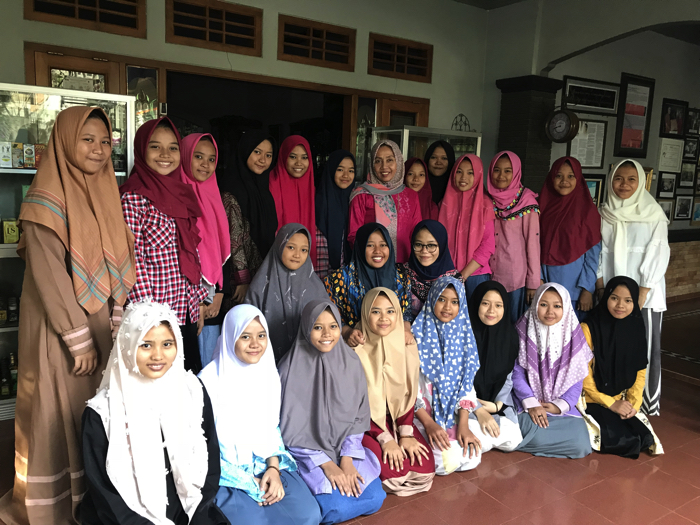- Project Leader : Nonaka Yo (Keio University, Faculty of Policy Management)
- Collaborators : Kitamura Yumi (Kyoto University, Kyoto University Library)
- : Sasaki Takuo (Kurume University, Faculty of Law)
- : Hasuike Takahiro (Senshu University, School of Law)
- : Okamoto Masaaki (Kyoto University, Center for Southeast Asian Studies)
Outline of Research
This research will clarify how religions have contributed and are contributing to the peace and stability of Indonesian society. Indonesia has the biggest Muslim population in the world and it is often said that Islam in Indonesia is becoming radical and conservative. However, since its independence, the Indonesian government has declared itself a non-Islamic state and has treated several official religions, including Protestantism, Catholicism, Hinduism, and Buddhism, as theoretically equal to Islam. The research group will summarize the discourses of respective religious groups in Indonesia regarding peace and stability, and research the religious practices of each of them.
Description
Within the context of growing globalization, the world seems to be divided and separated by religious conflicts. Arjun Appadurai claimed that with globalization, international terrorism, internal violence, and the exclusion of minority groups by majority groups would rise. Indonesia, the world biggest Muslim country, does not seem to be the exception. In some cases the religious majority makes use of their religion to exclude and segregate religious minorities in the society. Indonesia has the famous national credo, “Belief in the One and Only God”, as the first article of Pancasila, and at the same time it has never declared itself as an Islamic state and has treated six religions (Islam, Protestantism, Catholicism, Hinduism, Buddhism, and Confucianism) equally as official religions of the country. Religions in Indonesia have played major roles in the society under different political regimes and social authorities. The purpose of this research is to examine to what extent religion has contributed and can contribute to peace and stability in the case of Indonesia.
In Indonesia, especially after the era of democratization, it is often said that Islam is experiencing a conservative turn and legitimatization. Although the exclusion and repression of minority religions by certain Islamic groups has drawn researchers’ attention, the six official religions of Indonesia have been studied separately by respective researchers. In contrast, this research group consists of those who have studied different religion-related matters and will focus on projects and activities that promote interreligious peace and symbiosis.
Expected results of this research could be summarized as below;
(1) This research will clarify the local religious context within the larger context of globalization through discourse analysis and fieldwork that focuses on the contribution of religion to stability and peace.
(2) The research will elucidate a new framework of analysis that equally weighs all six official religions in Indonesia. This will provide a more comprehensive understanding of religious efforts toward peace and stability and address the current focus on the majority religion alone.
This research group is comprised of five members who have been studying respective religions and religious communities in Indonesia and aims to establish a new framework of analysis that places equal weight on the discourse of all six official religions.


